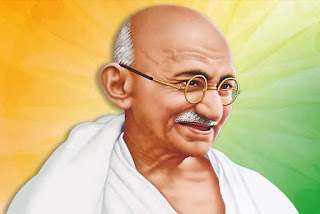Mahatma Gandhi | Biography, Education & Awards
Mohandas Karamchand Gandhi was an Indian lawyer, anti-colonial nationalist, and political ethicist. His non-violence resistance leads to the successful campaign for India's independence from British rule of India. Gandhi was the one who was considered The Great Soul or The Mahatma in the eyes of millions and millions of his fellow Indians.
- Full Name: Mohandas Karamchand Gandhi
- Born: 2 October 1869
- Place of Birth: Porbandar, Gujarat
- Death: 30 January 1948
- Place of Death: Delhi, India
- Cause of Death: Shot by Gun or assassination
- Father: Karamchand Gandhi
- Mother: Putlibai Gandhi
- Nationality: Indian
- Spouse: Kasturba Gandhi
- Children: Harilal Gandhi, Manilal Gandhi, Ramdas Gandhi, and Devdas Gandhi
- Professions: Lawyer, Politician, Activist, Writer
Early Life
Mahatma Gandhi was born on 2 October 1869, in Porbandar, Gujarat. His father Karamchand Gandhi was the Diwan of Porbandar state in British India and his mother Putlibai was the fourth wife of Karamchand. He was one of the five children of Karamchand Gandhi and Putlibai Gandhi. Laxmidas Karamchand Gandhi was the elder brother of Mahatam Gandhi and Mahatam Gandhi was elder from Raliatbehn Gandhi, Puncurvan Gandhi, Karsandas Gandhi, Pankunvarben Gandhi, Muliben Gandhi.
As Mahatma Gandhi was born in a Hindu family, Gandhi strictly followed vegetarianism and fasting as means of self-purification. At the age of 9 years, Mahatma Gandhi joined a local school in Rajkot and later on, he completed his high school in Rajkot in 1887, which is now known as Mohandas Gandhi High school. After it, Gandhi enrolled in Samaldas Arts College in 1888 but was not satisfied with his studies.
In the same year, 18 years old Gandhi sailed for London, England, to study law. Gandhi returned to India in 1891 and learned that his mother had died just weeks earlier. He started doing his efforts to become a lawyer and he struggled too much. After struggling in India, he obtained a one-year contract to perform legal services in South Africa, and in April 1893, he sailed for Durban in Natal, South Africa.
Achievements
Mahatma Gandhi has a very large impact on India's independence and he has an important role in the social development of other countries also. His achievements are:
- Mahatma Gandhi was the leading figure in India's independence: Gandhi's non-violence movements which are - Satyagraha Andolan, Asahyog Andolan, Savinay Avagya Andolan, etc. Lead India's independence in 1947.
- Mahatma Gandhi's Satyagraha campaign in South Africa led to the India relief act 1914: In 1906 south Africa staged a law that required all Asian males of Transvaal province to have their fingerprints and to carry a pass form. In response to this law, Mahatam Gandhi started Satyagraha and urged Indians to Contravene the new law and sustain its punishment. In 1913 this movement became intensified in protest against a £3 tex for ex-indentured Indians and because South Africa refused to esteem Indian marriages. In 1914 this campaign become successful. Indians were allowed to move anywhere in Transvaal freely, South Africa withdrew the £3 tex, and Indian marriages were recognized.
- He held his degree in law from the University of London.
- Mahatma Gandhi led the non-cooperation movement in the 1920s: Gandhi started the non-cooperation movement in response to the Jalianwala bagh massacre of 13 April 1919. In this movement, Gandhi urged Indians to take away their educational institutions, abjure British honors and titles, and resign from British employment. This movement became very successful. In 1922 a mob of Indians set a British police station on fire in which 22 Occupants were killed. Fearing it was turning towards violence Gandhi called off the non-cooperation movement.
- Mahatma Gandhi's Salt March to Dandi: In 1930, from 12 March - to 06 April Mahatam Gandhi traveled 388 kilometers in 24 days from Ahmadabad, Gujrat to Dandi to produce salt from the seaside. This movement was against the British salt law and increased taxes.
- Mahatma Gandhi led to Quit India Movement in 1942: Mahatam Gandhi started Quit India Movement on 18 August 1942.
- Mahatma Gandhi led a non-violent tex revolt in kheda successfully: In 1918 in kheda, Gujrat, India, was affected by flood and famine and the crops yield was less than a fourth. At the same time, the British government increased the rate of taxes in kheda. Although the peasants of Kheda requested for relief from taxes. Mahatam Gandhi with Vallabhbhai Patel initiated a campaign in which peasants pledge to non-payment of revenue in response British government threated to confiscated their land.
- Mahatma Gandhi became president of Indian National Congress in year 1924.
- Mahatma Gandhi was man of the year in Time's magazine: TIME named Gandhi as man of the year in 1930.
- Mahatma Gandhi was runner up to Albert Einstein in Time's person of the century: Time named Gandhi as runner up to Albert Einstein as a person of the year. Mahatama Gandhi is known as the greatest leader that the world has ever seen. He is an inspirational figure for several world leaders.
- Mahatma Gandhi's birthday on 2 October is commemorated Worldwide as International non-violence day.
- Mahatma Gandhi is revered in India as the father of the country.
Books by Mahatma Gandhi
The Books written by Mahatma Gandhi are based on India's independence, his life's work, and his thoughts. Books of Gandhi with publishing years are:
- "Hind Swaraj" was the first book written by Mahatma Gandhi in the year 1909. This book was written in Gujarati language and then translated into English.
- "An autobiography: A story of my experiments with truth" was written by Mahatma Gandhi in the year 1927. This book is based on Mahatma Gandhi's life, work, non-violence resistance, and ideas.
- "The Essential Gandhi" was written by Gandhi. This book is published in the year 1962. This book is based on Gandhi's thoughts on non-violence and socialism etc.
Awards
Mahatma Gandhi was named man of the year in 1930 by TIME Magzine. Mahatma Gandhi did not receive any Nobel prize Although he was nominated five times for the Nobel peace prize between 1937 to 1942.
Personal Information
Mahatma Gandhi married Kasturba Makhanji Kapadia (Kasturba Gandhi) in May 1883. Kasturba was the daughter of a merchant. In 1885, Gandhi's father passed away. Gandhi’s wife gave birth to the first of four surviving sons in 1888. A second son was born in India in 1893. His wife gave birth to two more sons while living in South Africa, one in 1897 and one in 1900. Harilal Gandhi, Devdas Gandhi, Manilal Gandhi, and Ramdas Gandhi were the four sons of Mahatma Gandhi. His wife Kasturba Gandhi dead in February 1944.
Death
Mahatma Gandhi died on 30 January 1948, in New Delhi. He was killed by Nathuram Godse. Gandhi's commitment to nonviolence and his belief in simple living has been a beacon of hope for oppressed and marginalized people throughout the world.
"Live as if you were to die tomorrow. Learn as if you were to live forever".
~Mahatma Gandhi


_copy_2240x1260.jpg)
_copy_2240x1260.jpg)
_copy_2240x1260.jpg)
_copy_2240x1260.jpg)
_copy_2240x1260.jpg)
_copy_2240x1260.jpg)
_copy_2240x1260.jpg)
_copy_2240x1260.jpg)